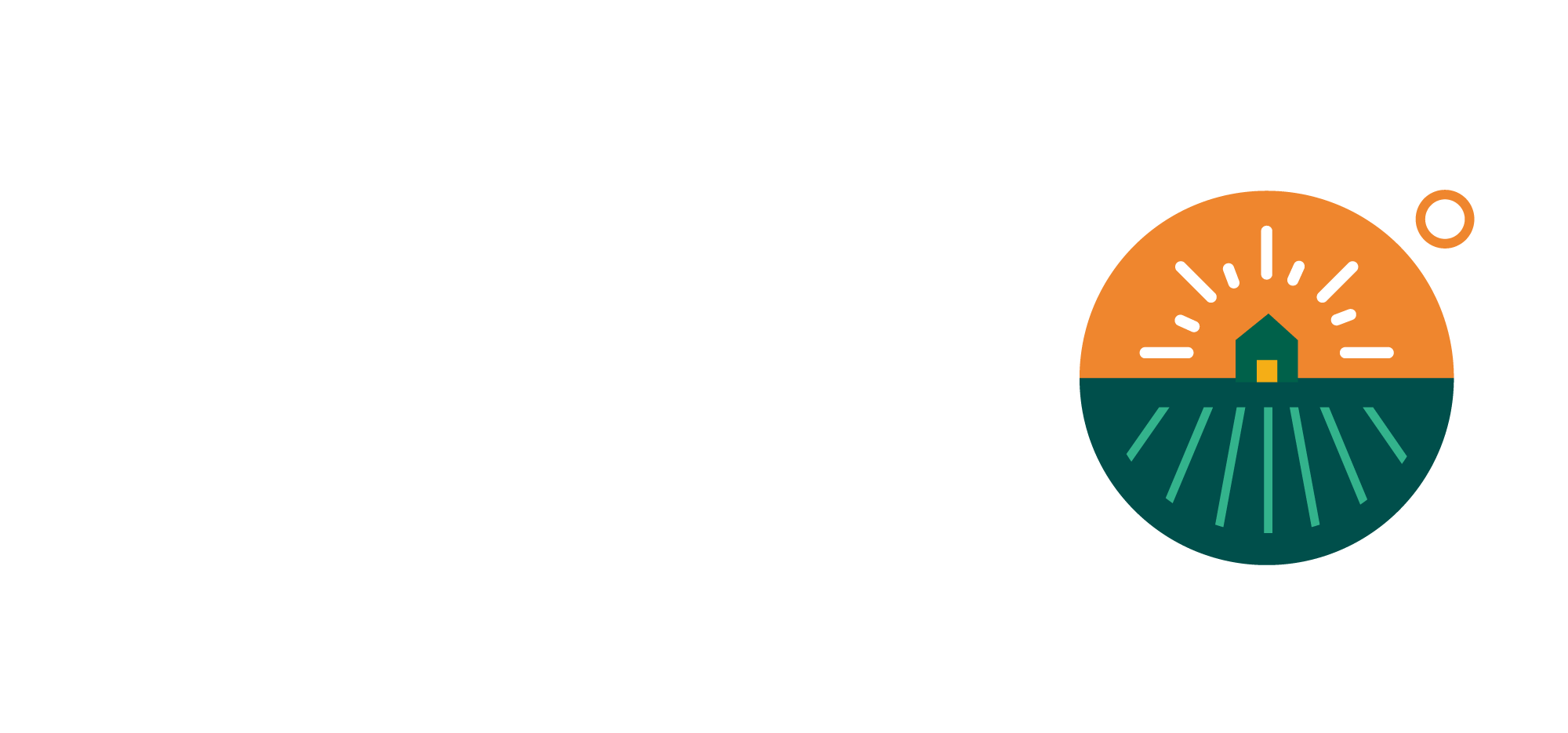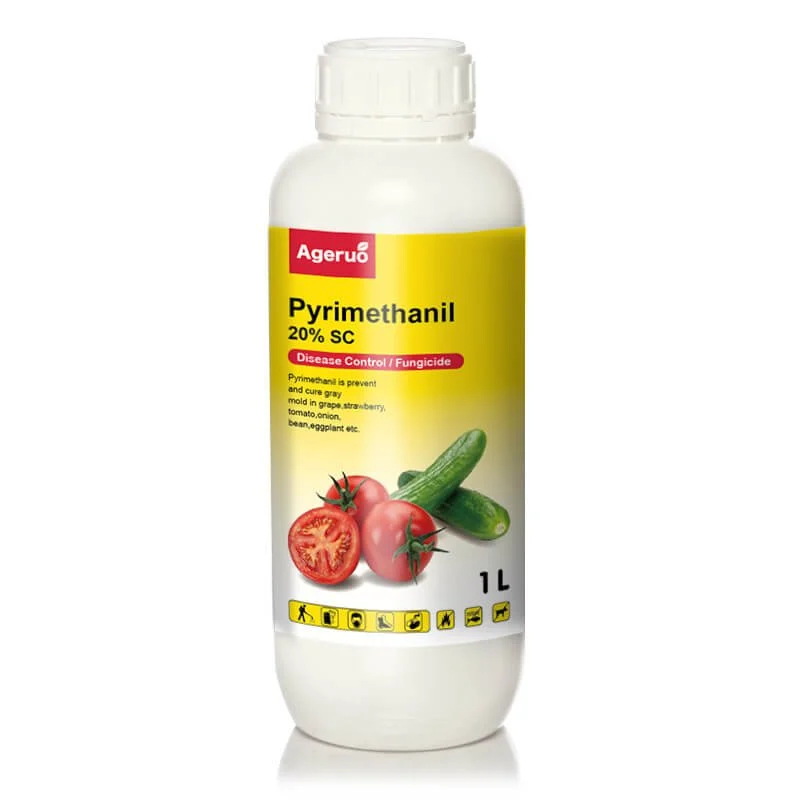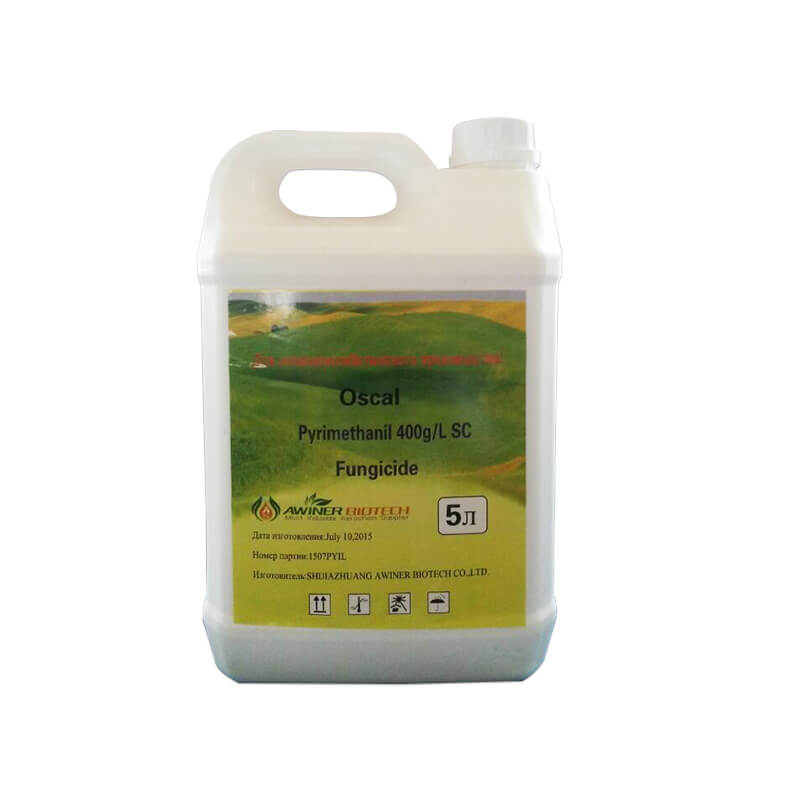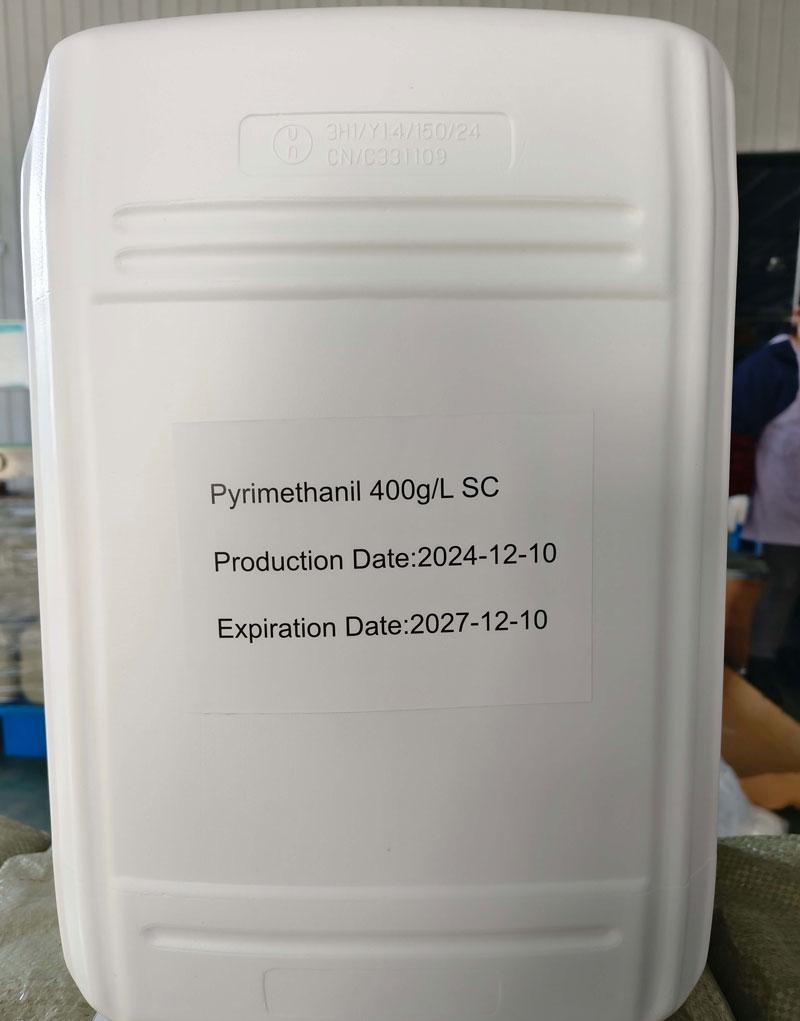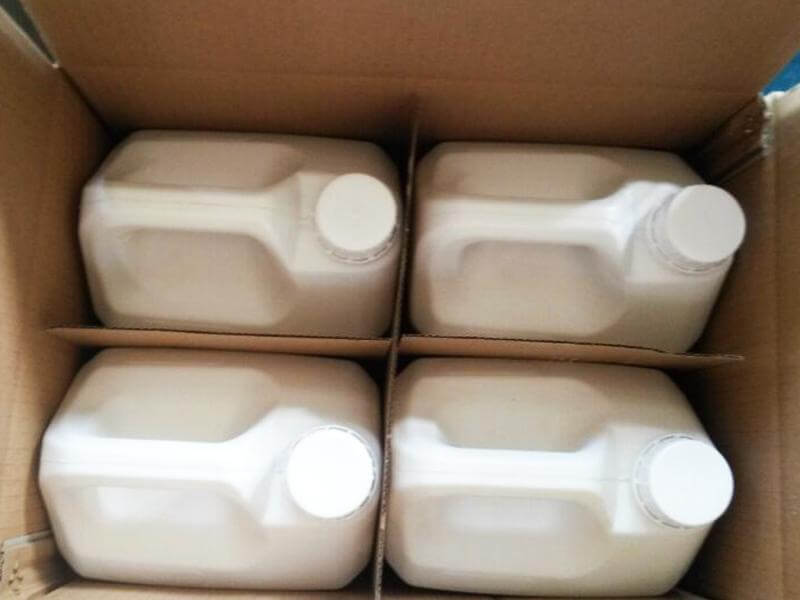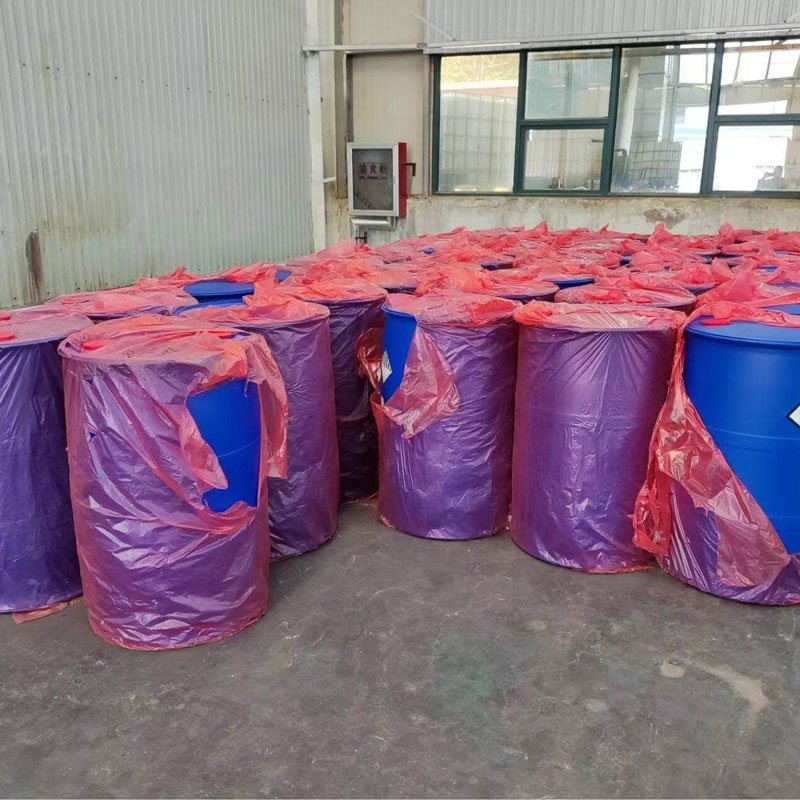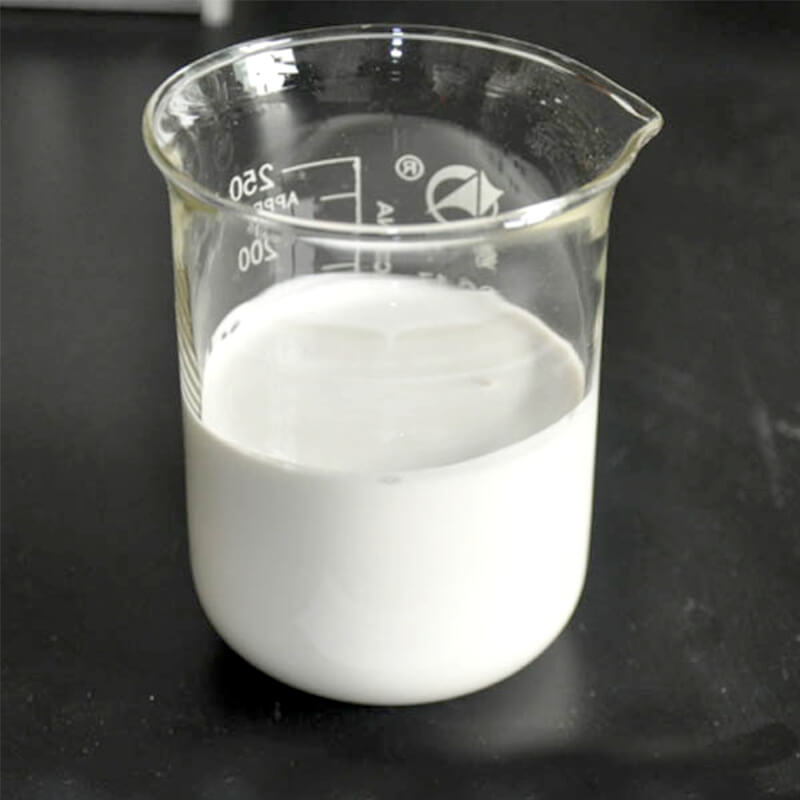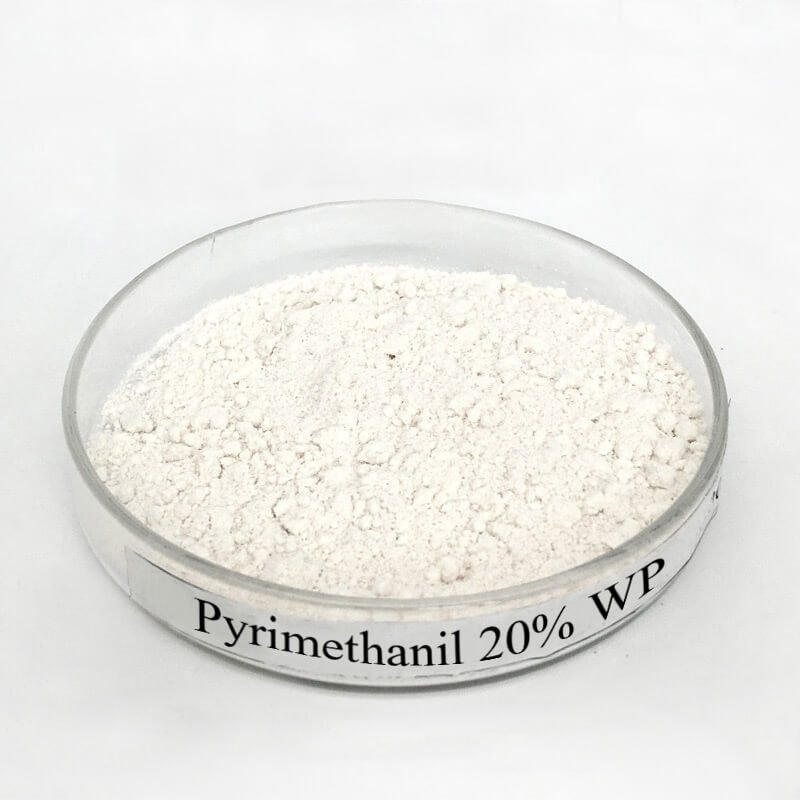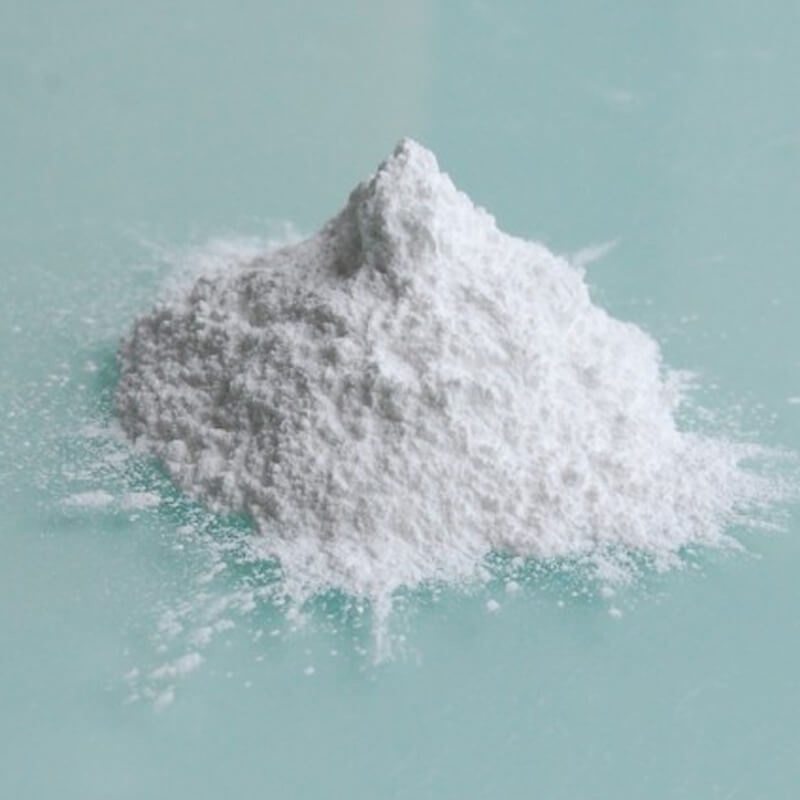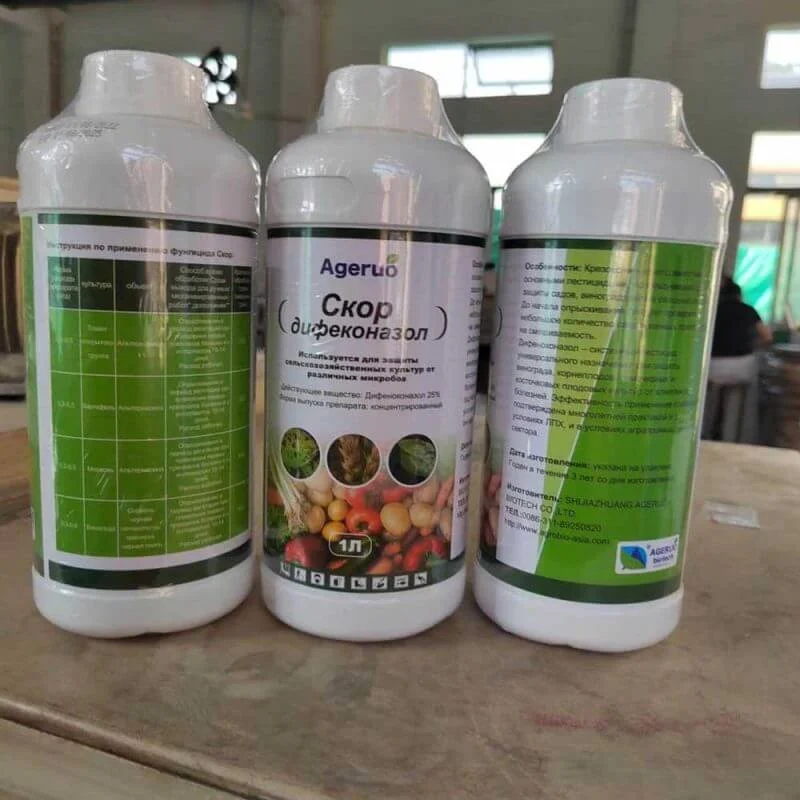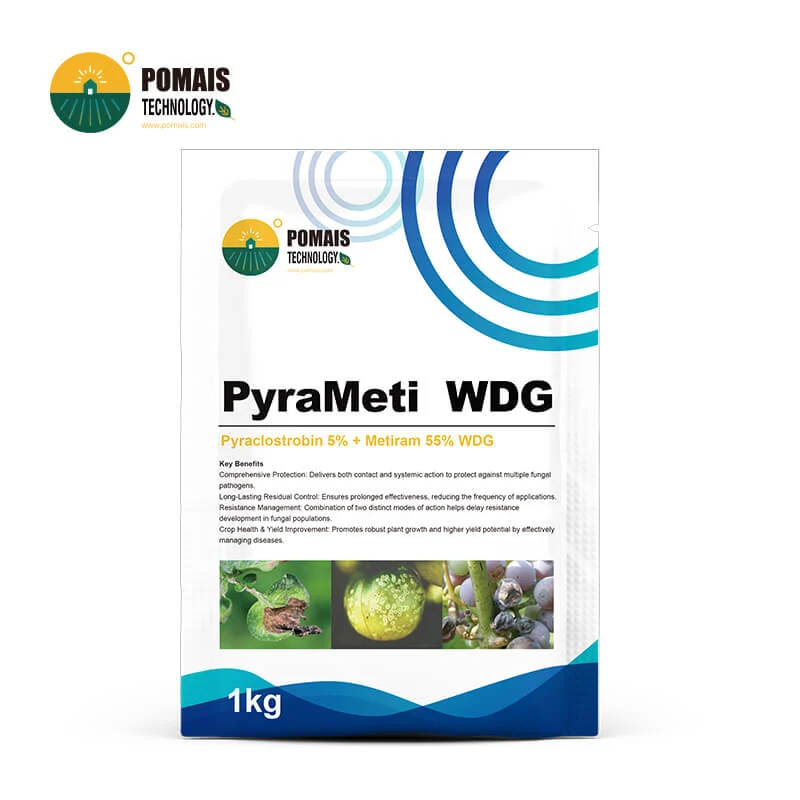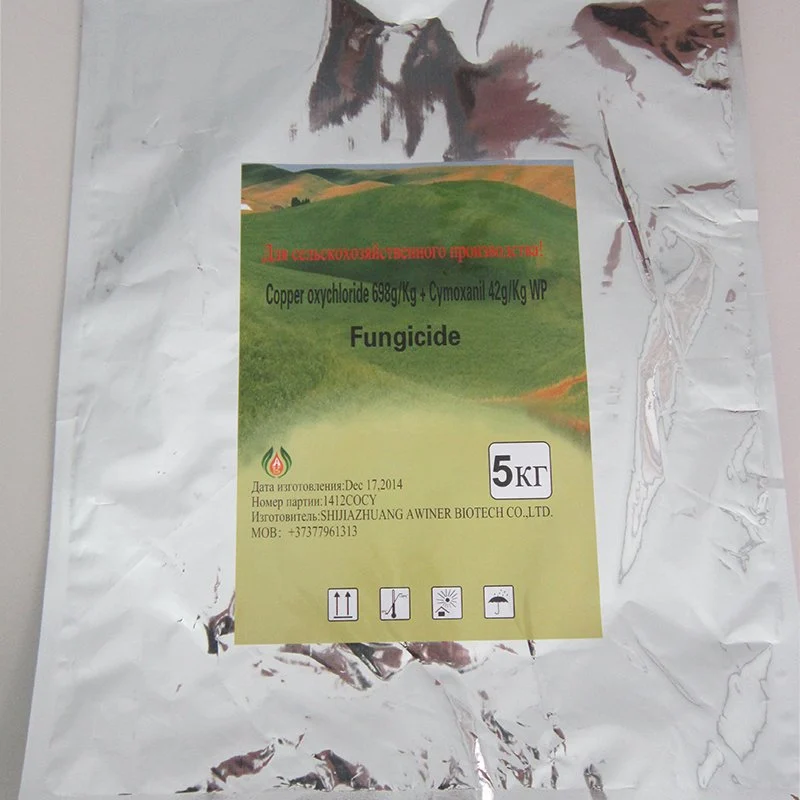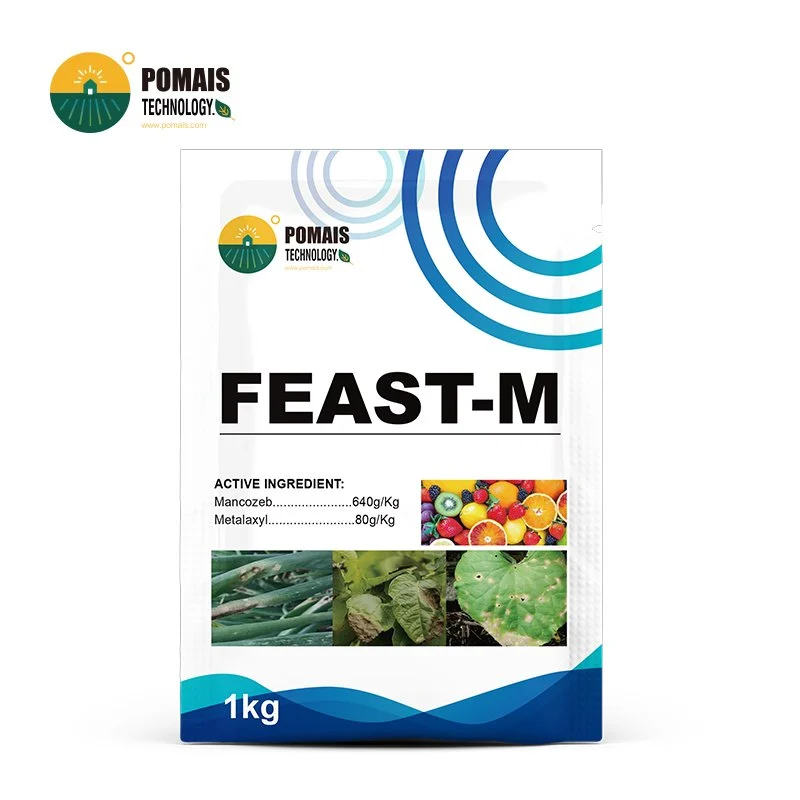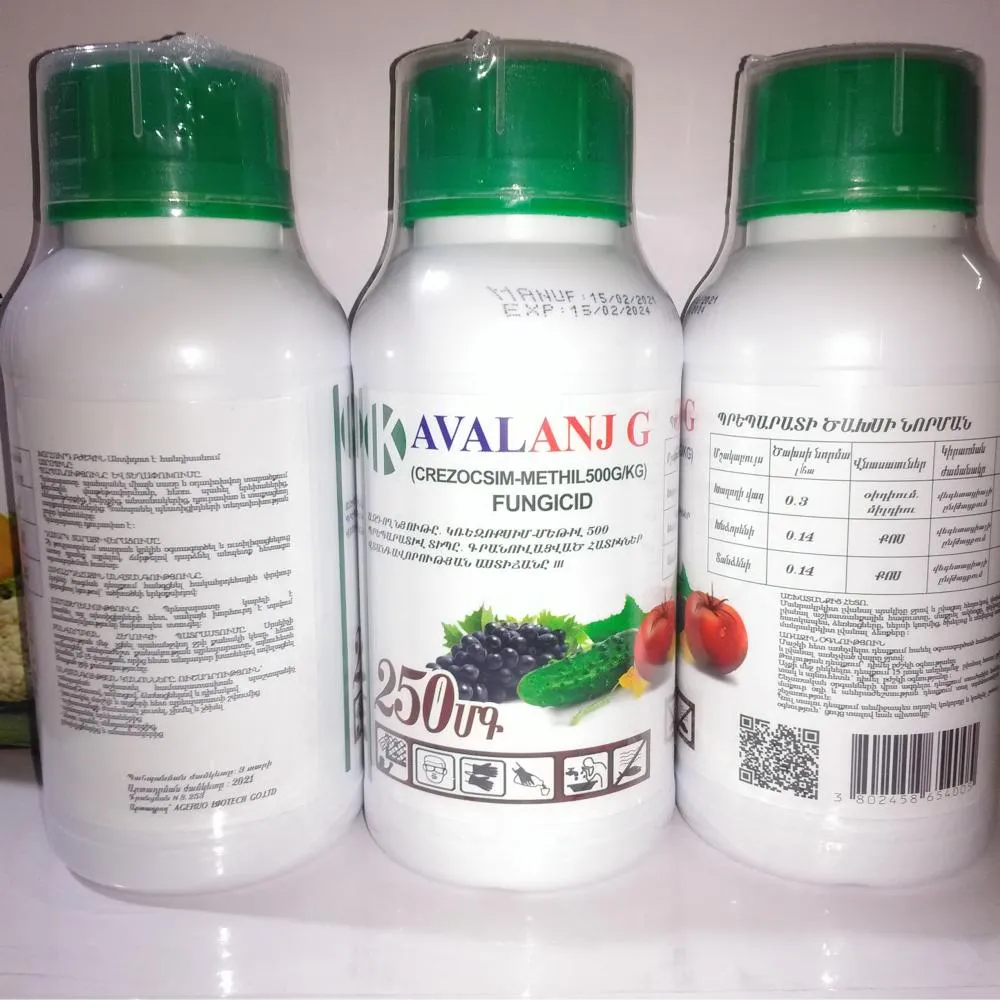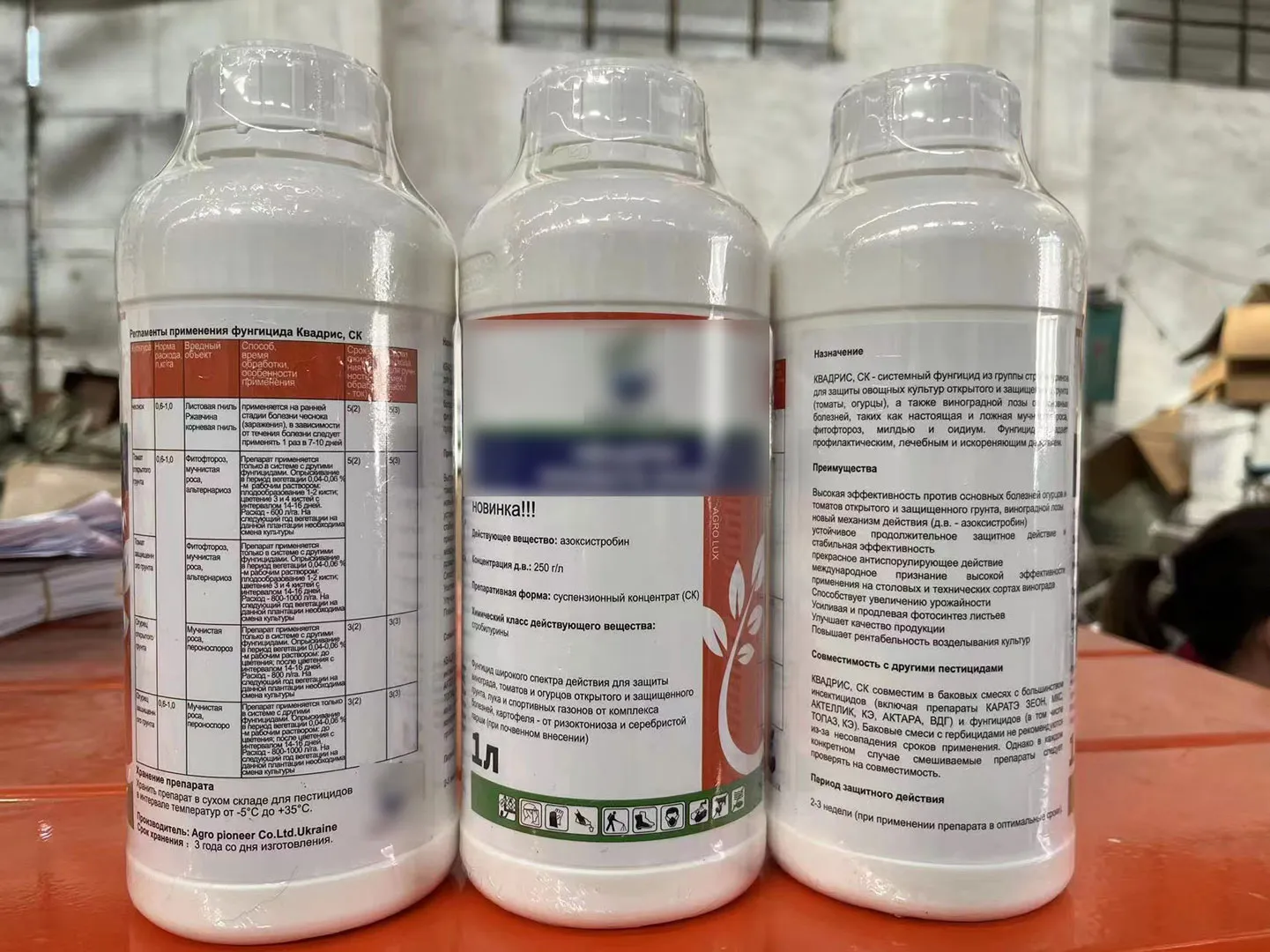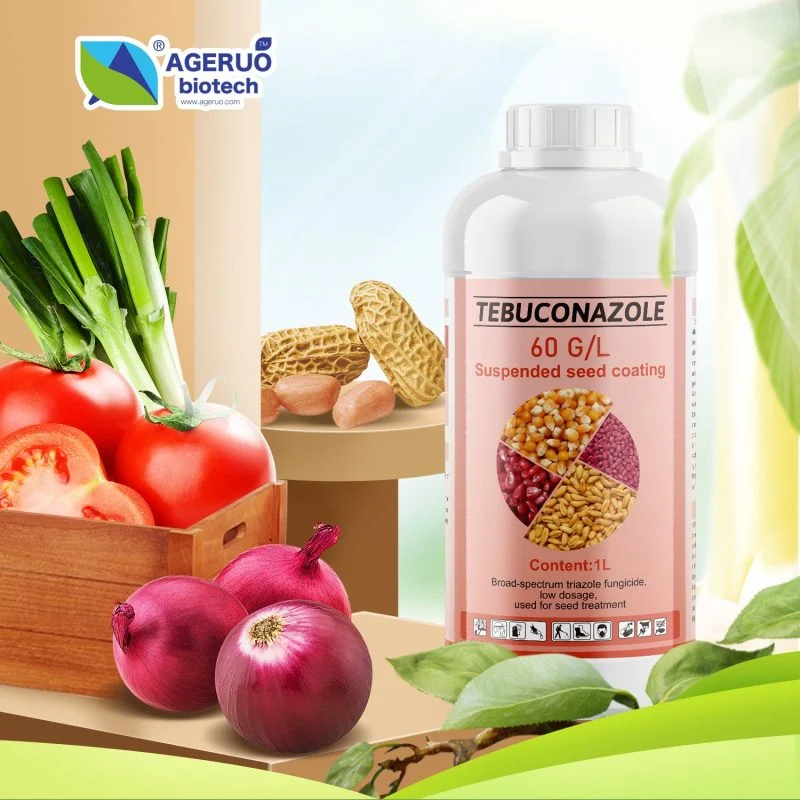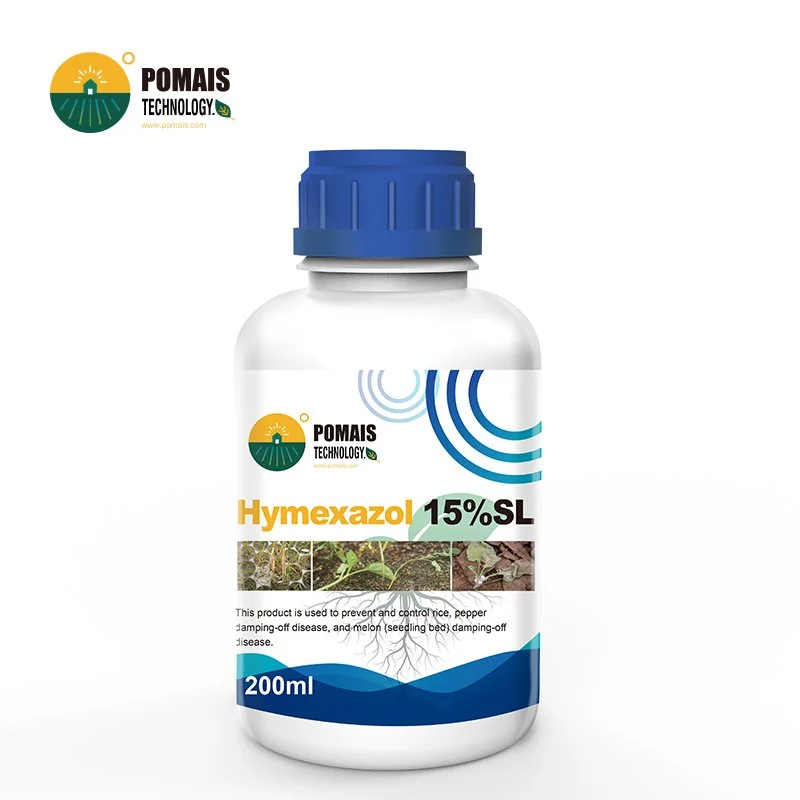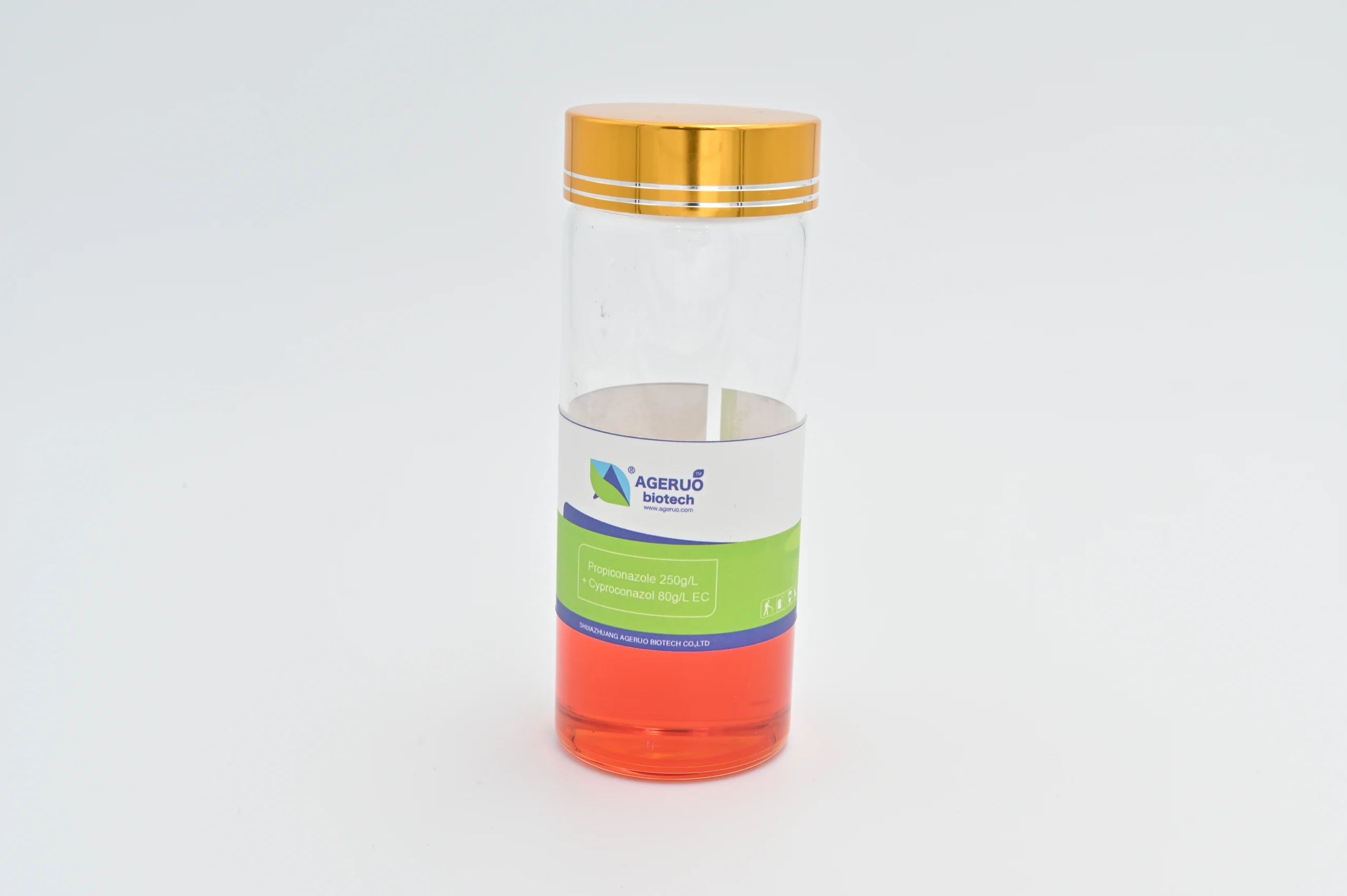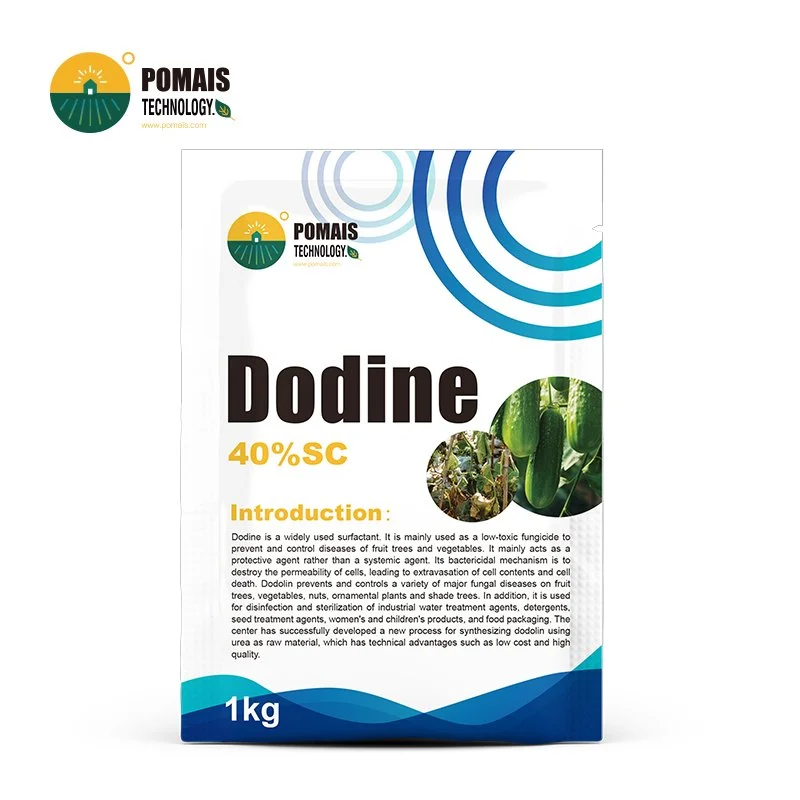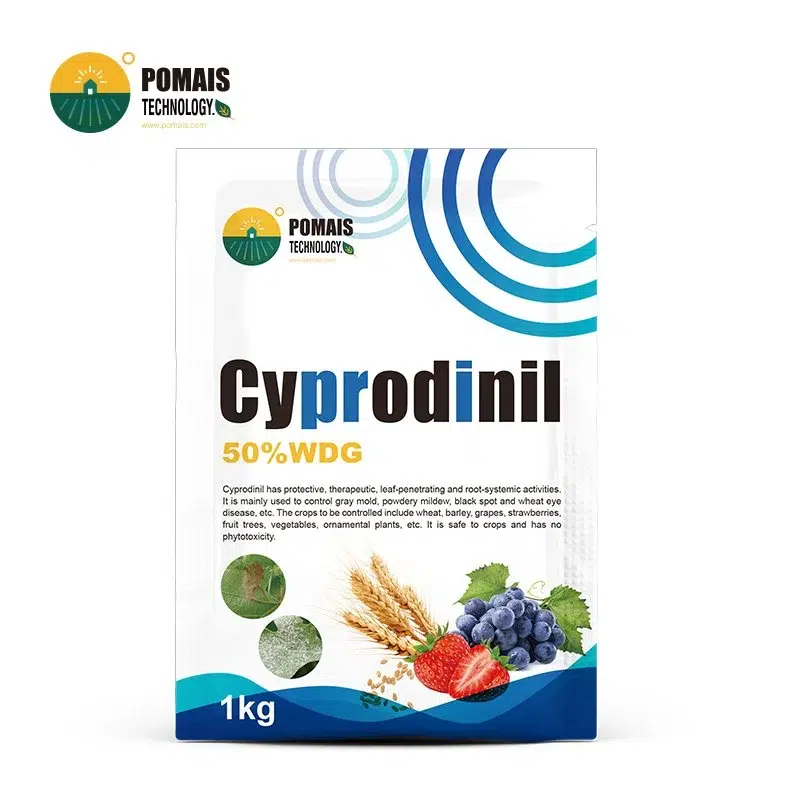Pyrimethanil Fungicide
Pre-Harvest & Post-Harvest Defense for Fruit Decay
Pyrimethanil is a highly effective, broad-spectrum anilinopyrimidine fungicide used for the prevention and control of fungal diseases in grapes, pears, citrus, and other fruits. Known for its protective and residual action, it is ideal for pre-harvest foliar spraying as well as post-harvest wax coating treatments.
Formulated as a 50% SC (Suspension Concentrate), Pyrimethanil is widely used by fruit growers and packers seeking to maintain fruit quality and reduce decay both in the field and during storage. Its flexible application methods and strong resistance management profile make it a preferred choice in integrated crop protection programs.
- Active Ingredient: Pyrimethanil
- Formulation: 50% SC (Suspension Concentrate)
- Mode of Action: Inhibits methionine biosynthesis and fungal cell wall degradation enzymes
- Primary Use: Pre-harvest foliar spray and post-harvest fruit wax incorporation
- Target Crops: Grapes, pears, oranges, lemons, citrus fruits
- Use Rates:
- Spray: 0.1%–0.2% aqueous solution (100–200 ppm)
- Waxing: 0.1%–0.3% concentration in wax emulsions
Whether you’re protecting grapes in the vineyard or pears in cold storage, pyrimethanil fungicide offers dual-stage fungal defense—before and after harvest.
- Designed for Professional Buyers & Bulk Orders
- This product is available for business purchase and large-scale distribution.
- We support custom packaging, labeling, and formulation to meet your market needs.
- Let’s build your brand together.

About Pyrimethanil Fungicide
About Pyrimethanil Fungicide
| Active Ingredient | Pyrimethanil 50% |
| Formulation Type | SC (Suspension Concentrate) |
| CAS Number | 53112-28-0 |
| Chemical Class | Anilinopyrimidine fungicide |
| Mode of Action | Inhibits methionine biosynthesis and fungal enzyme activity |
| Systemic Activity | Locally systemic (absorbed by fruit skin and leaf surface) |
| Application Uses | Pre-harvest foliar spray, post-harvest fruit wax integration, short dip treatment |
| Target Crops | Grapes, pears, citrus (oranges, lemons), apples (supplementary use) |
| Target Diseases | Botrytis, Penicillium, Alternaria, Anthracnose |
| Use Rate | Foliar spray: 100–200 mL/100L water Wax coating: 0.1%–0.3% of wax volume |
| Packaging Options | 100ml, 250ml, 500ml, 1L bottles; 5L, 10L, 20L cans; 200L drums |
| OEM Support | Custom labels, anti-counterfeit packaging, multilingual print (EN, ES, RU, etc.) |
| Shelf Life | 2 years (sealed, original container) |
| Storage | 5–30°C, dry & ventilated environment, away from direct sunlight |
| Documents Available | COA, SDS, TDS, field protocol, registration support |
| MOQ | 500L or per OEM agreement |
| Sample | Available upon request for trial or registration |
How Pyrimethanil Works: Preventing Fungal Decay from the Inside Out
What is pyrimethanil?
Pyrimethanil is a systemic fungicide belonging to the anilinopyrimidine class, designed to stop fruit rot and other fungal diseases before symptoms appear. It works primarily through preventive activity—interrupting key cellular functions within fungal pathogens and blocking their ability to spread.
Mode of Action: Two-Level Defense System
- Inhibition of Methionine Biosynthesis
Pyrimethanil blocks the production of methionine, an essential amino acid in fungi.- Without methionine, fungi cannot produce the proteins needed for growth and reproduction.
- This leads to weakened pathogen development and failure to establish infection on the fruit surface.
- Disruption of Cell Wall-Degrading Enzymes
- Fungal invasion often begins when enzymes break down the fruit’s outer layer.
- Pyrimethanil inhibits these enzymes, especially during wet or humid conditions.
- This creates a protective barrier on fruit skin, preventing entry and colonization.
Is Pyrimethanil Systemic?
Yes. Pyrimethanil is locally systemic:
- It is absorbed into the wax layer and surface cells of fruit or leaves.
- Provides long-lasting protection that persists even after light rainfall or irrigation.
- Ideal for pre-harvest spray programs and wax-based post-harvest applications.
Why This Mode of Action Matters
| Feature | Advantage |
|---|---|
| Preventive action | Stops infection before it starts |
| Protein inhibition | Halts spore germination and fungal spread |
| Enzyme disruption | Protects fruit from decay entry points |
| Compatibility | Works well with contact or multisite fungicides in rotation |
Unlike curative-only fungicides, pyrimethanil builds a proactive shield, helping your fruit enter storage or export with the best possible protection.
Target Crops and Pathogens: Where Pyrimethanil Excels
Pyrimethanil fungicide is primarily used to protect fruit crops that are prone to post-harvest decay, especially those stored or exported under high humidity or long transit conditions. Its dual-mode action makes it ideal for preventing surface rot, gray mold, and storage pathogens.
1. Grapes
| Disease | Controlled Pathogens | Application | Timing |
|---|---|---|---|
| Gray Mold | Botrytis cinerea | Foliar spray or pre-storage dip | Pre-harvest and/or pre-cooling |
| Stem-end Rot | Fungal complex | Wax coating or short dip | Post-harvest processing |
Grapes are highly perishable, and Pyrimethanil is one of the few actives that effectively guards against Botrytis during both growing and cold chain phases.
2. Pears
| Disease | Pathogens | Use | Application |
|---|---|---|---|
| Storage Rot | Penicillium, Alternaria spp. | Fruit waxing or light misting | Post-harvest line |
| Blue Mold | Penicillium expansum | Spray or wax mix | Export-focused production lines |
Pears often develop rot during shipping or display, making Pyrimethanil ideal for residual, non-staining protection.
3. Oranges and Lemons (Citrus)
| Disease | Pathogens | Treatment | Notes |
|---|---|---|---|
| Green Mold, Blue Mold | Penicillium digitatum, P. italicum | Wax mix or spray | Use in 0.1–0.3% wax solution for better skin adherence |
| Anthracnose | Colletotrichum spp. | Pre-harvest foliar spray | Combine with multi-site for full-spectrum defense |
Pyrimethanil on oranges and lemons ensures that citrus fruit stays clean, bright, and mold-free in export cartons and retail shelves.
4. Apples (Supplemental)
While not a primary label crop in all regions, Pyrimethanil may also be used on apples in low-concentration wax programs to reduce stem-end decay and blue mold during storage.
Summary of Key Use Cases
| Crop | Application | Disease Controlled |
|---|---|---|
| Grapes | Foliar spray / wax | Botrytis, gray mold |
| Pears | Wax mix / spray | Penicillium rot, storage decay |
| Oranges, Lemons | Spray / wax mix | Green mold, anthracnose |
| Apples | Wax mix | Supplemental rot control |
If your fruit is destined for storage, transport, or export, pyrimethanil helps keep its market value intact.
Recommended Application Methods and Dosage: How to Use Pyrimethanil for Maximum Protection
Pyrimethanil 50% SC is designed for easy dilution, flexible application, and high efficacy at low concentrations. It’s suited for both field spraying before harvest and post-harvest integration into fruit wax—giving producers a complete fungal control solution across the crop life cycle.
1. Pre-Harvest Foliar Spray
Purpose: Prevent early fungal infection and reduce disease load entering storage
| Crop | Dilution Ratio | Concentration | Timing |
|---|---|---|---|
| Grapes | 100–200 mL / 100L water | 0.1%–0.2% solution | 7–10 days before harvest |
| Pears | 150–200 mL / 100L | 0.15%–0.2% | Before rainy period or pre-harvest |
| Citrus (oranges, lemons) | 100–150 mL / 100L | 0.1%–0.15% | 10–14 days before picking |
- Application volume: 500–1000 L/ha depending on canopy size
- Spray method: Use mist sprayers or boom sprayers for even coverage
- Weather: Apply during dry, cool conditions; avoid within 3 hours of rainfall
Pre-harvest application helps reduce infection points before harvest and during storage.
2. Post-Harvest Wax Coating Integration
Purpose: Provide ongoing mold protection during storage, shipping, and retail display
| Application Method | Pyrimethanil Dosage | Notes |
|---|---|---|
| Wax integration (manual or automated) | 0.1%–0.3% by volume | Add 100–300 mL pyrimethanil SC to 100L wax |
| Spray-on wax coating | 0.15%–0.2% | For conveyor-line treatment tunnels |
| Short dip treatment | 0.1%–0.15% | 30-second immersion before waxing |
- Stir continuously to ensure even distribution in wax emulsion
- Ensure fruit is dry and clean before waxing for better adhesion
- Let coated fruit dry completely before packing
Tips for Best Results
- Use clean, neutral pH water for diluting SC formulation
- Apply at the first signs of increased humidity or fungal pressure
- For integrated control, rotate with fungicides of a different FRAC code
- Use dedicated tanks when mixing with wax to avoid surfactant breakdown
Sample Calculation
If you are treating 10,000 kg of citrus fruit with a 0.2% wax coating:
- You’ll need 200 mL of Pyrimethanil 50% SC per 100L of wax emulsion
- For 200L wax tank → use 400 mL of product
Whether used in the vineyard or the packing house, Pyrimethanil delivers consistent, residue-compliant fungal protection—without staining or phytotoxicity.
Advantages and Technical Highlights: Why Choose Pyrimethanil?
Pyrimethanil 50% SC stands out as a modern, flexible, and highly efficient solution for fruit disease control, trusted by producers and exporters worldwide. Whether you’re preparing crops for harvest or preserving value during transport, Pyrimethanil offers unmatched versatility and reliability.
1. Broad-Spectrum, Targeted Control
- Highly effective against key post-harvest and storage fungi, including Botrytis, Penicillium, and Alternaria
- Prevents both surface decay and latent infection, reducing the need for repeated treatment
- Especially valuable in high-humidity crops such as grapes, pears, oranges, and lemons
2. Unique Mode of Action for Preventive Power
- Inhibits methionine synthesis and cell wall-degrading enzymes, effectively halting fungal development
- Works before visible symptoms appear, reducing spore spread and infection hotspots
- Suitable for resistance management programs, especially when rotated with multisite or contact fungicides
3. Excellent Fit for Post-Harvest Handling
- Can be blended into fruit wax emulsions without disrupting visual appearance or gloss
- Provides residual protection throughout transport and storage, minimizing waste and decay losses
- Delivers low residue levels, compliant with international MRL standards—ideal for exporters
4. Safe, Crop-Friendly Formulation
- Non-phytotoxic when used as directed
- Compatible with standard spray equipment and waxing lines
- No staining or residue buildup on fruit skin
5. Cost-Efficient at Low Dose
- Effective at just 0.1–0.2% concentration
- Low volume needed per ton of treated fruit
- Reduces total input costs while increasing marketable yield
6. OEM and Market Adaptability
- Available for OEM customization with your brand label and multilingual packaging
- Supports fruit treatment product lines for packing houses, distributors, and regional brands
- Includes documentation (COA, SDS, TDS) for registration or export support
From orchard to shelf, pyrimethanil fungicide helps fruit arrive fresher, cleaner, and with less loss—protecting your harvest, your brand, and your bottom line.
Formulations and OEM Options: Flexible Delivery for Global Crop Protection
To support international fruit producers, packing houses, and agrochemical distributors, we provide Pyrimethanil 50% SC in a format optimized for ease of use, efficient transport, and scalable distribution. Whether you need branded retail packs or bulk technical supply, our team can meet your packaging, labeling, and documentation needs.
Available Formulation
| Formulation | Description | Application Use |
|---|---|---|
| Pyrimethanil 50% SC | Suspension concentrate with excellent dispersibility and residue control | Foliar spray, wax integration, post-harvest dip |
- Easy dilution in water or wax
- Long-lasting suspension stability
- Low-odor and safe-to-handle formulation
Packaging Options
We provide a range of industrial and retail-friendly packaging sizes, suitable for different markets and operational scales.
| Packaging Type | Available Sizes | Usage Scenario |
|---|---|---|
| HDPE Bottles | 100ml / 250ml / 500ml / 1L | Small-scale farms, trial orders |
| Jerry Cans | 5L / 10L / 20L | Farm distributors, packing plants |
| UN Drums | 200L | Bulk purchasing, national distribution |
All containers are:
- Leak-proof and UV-protected
- UN-certified for safe international transport
- Customizable with private label designs and multilingual content
OEM and Private Label Services
Whether you’re building a regional pesticide line or fulfilling a government procurement contract, we support full-stack OEM implementation:
- Custom labels and carton designs
- Multi-language printing for international markets
- COA, SDS, TDS, and field trial protocols available
- Anti-counterfeit measures: QR codes, batch tracking, holograms
- Flexible MOQs for both pilot batches and large orders
With our support, you don’t just buy pyrimethanil—you launch a complete, export-ready brand.
Storage, Safety, and Environmental Handling
While Pyrimethanil fungicide is designed for safe and efficient use in agricultural operations, proper handling is critical to maintain product efficacy, protect users, and reduce environmental risks. This section outlines best practices for storage, application safety, and waste management.
Safe Storage Recommendations
| Factor | Guideline |
|---|---|
| Temperature | Store between 5°C and 30°C in a dry, shaded area |
| Moisture Control | Keep tightly sealed to prevent water ingress or degradation |
| Light Protection | Avoid direct sunlight to preserve formulation stability |
| Segregation | Store separately from food, animal feed, seeds, and water sources |
| Shelf Life | 2 years in original packaging under proper conditions |
Keep containers upright and tightly closed when not in use. Follow a first-in, first-out (FIFO) inventory policy for optimal usage.
Handling & Safety Measures
- Wear gloves, long sleeves, goggles, and masks during mixing and spraying
- Do not eat, drink, or smoke while handling the product
- Avoid skin and eye contact and inhalation of spray mist
- Wash thoroughly after use, especially before handling food or livestock
- Use in well-ventilated areas or with proper exhaust if applied indoors (e.g., packing houses)
First Aid Instructions
| Exposure Type | Response |
|---|---|
| Skin Contact | Wash with plenty of water and soap for 15 minutes |
| Eye Contact | Rinse eyes with clean water for at least 15 minutes; seek medical advice |
| Inhalation | Move to fresh air; consult a doctor if symptoms occur |
| Ingestion | Do not induce vomiting; seek immediate medical attention |
Environmental Safety Guidelines
Although Pyrimethanil pesticide is considered low-risk to mammals and birds, proper environmental handling is essential:
- Do not apply near water bodies (ponds, streams, aquaculture)
- Prevent spray drift into unintended crops or natural habitats
- Avoid contamination of irrigation ditches, wells, or storm drains
- Do not reuse or refill empty containers
- Dispose of waste and rinsate in accordance with local agrochemical disposal laws
Empty containers should be triple-rinsed, punctured, and recycled or incinerated as permitted by local regulations.
Transport & Compliance
- Packaged in UN-certified containers for international shipping
- Labeled according to GHS and country-specific chemical safety regulations
- Documentation provided: COA, MSDS, batch number, shelf life, safety instructions
FAQ & Buyer’s Guide
What is Pyrimethanil used for?
Pyrimethanil fungicide is primarily used to prevent gray mold, blue mold, and storage rots in fruit crops like grapes, pears, citrus (oranges, lemons). It is effective when applied as a pre-harvest foliar spray or as a post-harvest wax coating additive, especially for fruits destined for storage and export.
What is the mode of action of Pyrimethanil?
Pyrimethanil works by:
- Inhibiting methionine biosynthesis, a key amino acid fungi need for protein development
- Blocking enzymes responsible for breaking down plant cell walls, stopping fungi from entering fruit skin
This makes it a preventive, locally systemic fungicide—ideal for high-value fruit protection.
Can I use Pyrimethanil on oranges or lemons?
Yes. Pyrimethanil on oranges and lemons is commonly used to prevent Penicillium decay, especially during cold storage or shipment. It is often applied via:
- Low-dose foliar sprays before harvest
- Integration into citrus wax coatings at 0.1%–0.3%
Is Pyrimethanil a systemic fungicide?
Yes, it is locally systemic. It is absorbed by surface cells of fruit or leaves and offers residual protection, but does not move throughout the entire plant like fully systemic fungicides.
How do I apply Pyrimethanil correctly?
- Spraying: Use 0.1%–0.2% solution in clean water, 7–10 days before harvest
- Wax coating: Mix 0.1%–0.3% into fruit wax for post-harvest protection
- Use mist sprayers or wax tunnels with proper mixing for even coverage
How do I buy Pyrimethanil in bulk?
You can order:
- OEM/private label branded product (100ml–20L formats)
- Bulk technical supply in 200L UN drums
- We support custom formulation packaging, multi-language labeling, and document kits for registration
What is the typical pyrimethanil price?
The price of Pyrimethanil 50% SC depends on:
- Order volume and packaging size
- Destination port or region
- Labeling and OEM customization requirements
Contact us for a tailored FOB/CIF quotation with tech pack and sample support.
Ready to Protect Your Fruit from Farm to Shelf?
We support:
- Global fruit exporters and packhouses
- Agrochemical distributors and importers
- Private label fungicide brand owners
With:
- Samples for testing
- OEM support
- Technical documentation (COA, SDS, field protocols)
- Fast production and export delivery
Contact us today to buy pyrimethanil, discuss your custom label project, or request a trial pack.
| Active Ingredient | Pyrimethanil 50% |
| Formulation Type | SC (Suspension Concentrate) |
| CAS Number | 53112-28-0 |
| Chemical Class | Anilinopyrimidine fungicide |
| Mode of Action | Inhibits methionine biosynthesis and fungal enzyme activity |
| Systemic Activity | Locally systemic (absorbed by fruit skin and leaf surface) |
| Application Uses | Pre-harvest foliar spray, post-harvest fruit wax integration, short dip treatment |
| Target Crops | Grapes, pears, citrus (oranges, lemons), apples (supplementary use) |
| Target Diseases | Botrytis, Penicillium, Alternaria, Anthracnose |
| Use Rate | Foliar spray: 100–200 mL/100L water Wax coating: 0.1%–0.3% of wax volume |
| Packaging Options | 100ml, 250ml, 500ml, 1L bottles; 5L, 10L, 20L cans; 200L drums |
| OEM Support | Custom labels, anti-counterfeit packaging, multilingual print (EN, ES, RU, etc.) |
| Shelf Life | 2 years (sealed, original container) |
| Storage | 5–30°C, dry & ventilated environment, away from direct sunlight |
| Documents Available | COA, SDS, TDS, field protocol, registration support |
| MOQ | 500L or per OEM agreement |
| Sample | Available upon request for trial or registration |
How Pyrimethanil Works: Preventing Fungal Decay from the Inside Out
What is pyrimethanil?
Pyrimethanil is a systemic fungicide belonging to the anilinopyrimidine class, designed to stop fruit rot and other fungal diseases before symptoms appear. It works primarily through preventive activity—interrupting key cellular functions within fungal pathogens and blocking their ability to spread.
Mode of Action: Two-Level Defense System
- Inhibition of Methionine Biosynthesis
Pyrimethanil blocks the production of methionine, an essential amino acid in fungi.- Without methionine, fungi cannot produce the proteins needed for growth and reproduction.
- This leads to weakened pathogen development and failure to establish infection on the fruit surface.
- Disruption of Cell Wall-Degrading Enzymes
- Fungal invasion often begins when enzymes break down the fruit’s outer layer.
- Pyrimethanil inhibits these enzymes, especially during wet or humid conditions.
- This creates a protective barrier on fruit skin, preventing entry and colonization.
Is Pyrimethanil Systemic?
Yes. Pyrimethanil is locally systemic:
- It is absorbed into the wax layer and surface cells of fruit or leaves.
- Provides long-lasting protection that persists even after light rainfall or irrigation.
- Ideal for pre-harvest spray programs and wax-based post-harvest applications.
Why This Mode of Action Matters
| Feature | Advantage |
|---|---|
| Preventive action | Stops infection before it starts |
| Protein inhibition | Halts spore germination and fungal spread |
| Enzyme disruption | Protects fruit from decay entry points |
| Compatibility | Works well with contact or multisite fungicides in rotation |
Unlike curative-only fungicides, pyrimethanil builds a proactive shield, helping your fruit enter storage or export with the best possible protection.
Target Crops and Pathogens: Where Pyrimethanil Excels
Pyrimethanil fungicide is primarily used to protect fruit crops that are prone to post-harvest decay, especially those stored or exported under high humidity or long transit conditions. Its dual-mode action makes it ideal for preventing surface rot, gray mold, and storage pathogens.
1. Grapes
| Disease | Controlled Pathogens | Application | Timing |
|---|---|---|---|
| Gray Mold | Botrytis cinerea | Foliar spray or pre-storage dip | Pre-harvest and/or pre-cooling |
| Stem-end Rot | Fungal complex | Wax coating or short dip | Post-harvest processing |
Grapes are highly perishable, and Pyrimethanil is one of the few actives that effectively guards against Botrytis during both growing and cold chain phases.
2. Pears
| Disease | Pathogens | Use | Application |
|---|---|---|---|
| Storage Rot | Penicillium, Alternaria spp. | Fruit waxing or light misting | Post-harvest line |
| Blue Mold | Penicillium expansum | Spray or wax mix | Export-focused production lines |
Pears often develop rot during shipping or display, making Pyrimethanil ideal for residual, non-staining protection.
3. Oranges and Lemons (Citrus)
| Disease | Pathogens | Treatment | Notes |
|---|---|---|---|
| Green Mold, Blue Mold | Penicillium digitatum, P. italicum | Wax mix or spray | Use in 0.1–0.3% wax solution for better skin adherence |
| Anthracnose | Colletotrichum spp. | Pre-harvest foliar spray | Combine with multi-site for full-spectrum defense |
Pyrimethanil on oranges and lemons ensures that citrus fruit stays clean, bright, and mold-free in export cartons and retail shelves.
4. Apples (Supplemental)
While not a primary label crop in all regions, Pyrimethanil may also be used on apples in low-concentration wax programs to reduce stem-end decay and blue mold during storage.
Summary of Key Use Cases
| Crop | Application | Disease Controlled |
|---|---|---|
| Grapes | Foliar spray / wax | Botrytis, gray mold |
| Pears | Wax mix / spray | Penicillium rot, storage decay |
| Oranges, Lemons | Spray / wax mix | Green mold, anthracnose |
| Apples | Wax mix | Supplemental rot control |
If your fruit is destined for storage, transport, or export, pyrimethanil helps keep its market value intact.
Recommended Application Methods and Dosage: How to Use Pyrimethanil for Maximum Protection
Pyrimethanil 50% SC is designed for easy dilution, flexible application, and high efficacy at low concentrations. It’s suited for both field spraying before harvest and post-harvest integration into fruit wax—giving producers a complete fungal control solution across the crop life cycle.
1. Pre-Harvest Foliar Spray
Purpose: Prevent early fungal infection and reduce disease load entering storage
| Crop | Dilution Ratio | Concentration | Timing |
|---|---|---|---|
| Grapes | 100–200 mL / 100L water | 0.1%–0.2% solution | 7–10 days before harvest |
| Pears | 150–200 mL / 100L | 0.15%–0.2% | Before rainy period or pre-harvest |
| Citrus (oranges, lemons) | 100–150 mL / 100L | 0.1%–0.15% | 10–14 days before picking |
- Application volume: 500–1000 L/ha depending on canopy size
- Spray method: Use mist sprayers or boom sprayers for even coverage
- Weather: Apply during dry, cool conditions; avoid within 3 hours of rainfall
Pre-harvest application helps reduce infection points before harvest and during storage.
2. Post-Harvest Wax Coating Integration
Purpose: Provide ongoing mold protection during storage, shipping, and retail display
| Application Method | Pyrimethanil Dosage | Notes |
|---|---|---|
| Wax integration (manual or automated) | 0.1%–0.3% by volume | Add 100–300 mL pyrimethanil SC to 100L wax |
| Spray-on wax coating | 0.15%–0.2% | For conveyor-line treatment tunnels |
| Short dip treatment | 0.1%–0.15% | 30-second immersion before waxing |
- Stir continuously to ensure even distribution in wax emulsion
- Ensure fruit is dry and clean before waxing for better adhesion
- Let coated fruit dry completely before packing
Tips for Best Results
- Use clean, neutral pH water for diluting SC formulation
- Apply at the first signs of increased humidity or fungal pressure
- For integrated control, rotate with fungicides of a different FRAC code
- Use dedicated tanks when mixing with wax to avoid surfactant breakdown
Sample Calculation
If you are treating 10,000 kg of citrus fruit with a 0.2% wax coating:
- You’ll need 200 mL of Pyrimethanil 50% SC per 100L of wax emulsion
- For 200L wax tank → use 400 mL of product
Whether used in the vineyard or the packing house, Pyrimethanil delivers consistent, residue-compliant fungal protection—without staining or phytotoxicity.
Advantages and Technical Highlights: Why Choose Pyrimethanil?
Pyrimethanil 50% SC stands out as a modern, flexible, and highly efficient solution for fruit disease control, trusted by producers and exporters worldwide. Whether you’re preparing crops for harvest or preserving value during transport, Pyrimethanil offers unmatched versatility and reliability.
1. Broad-Spectrum, Targeted Control
- Highly effective against key post-harvest and storage fungi, including Botrytis, Penicillium, and Alternaria
- Prevents both surface decay and latent infection, reducing the need for repeated treatment
- Especially valuable in high-humidity crops such as grapes, pears, oranges, and lemons
2. Unique Mode of Action for Preventive Power
- Inhibits methionine synthesis and cell wall-degrading enzymes, effectively halting fungal development
- Works before visible symptoms appear, reducing spore spread and infection hotspots
- Suitable for resistance management programs, especially when rotated with multisite or contact fungicides
3. Excellent Fit for Post-Harvest Handling
- Can be blended into fruit wax emulsions without disrupting visual appearance or gloss
- Provides residual protection throughout transport and storage, minimizing waste and decay losses
- Delivers low residue levels, compliant with international MRL standards—ideal for exporters
4. Safe, Crop-Friendly Formulation
- Non-phytotoxic when used as directed
- Compatible with standard spray equipment and waxing lines
- No staining or residue buildup on fruit skin
5. Cost-Efficient at Low Dose
- Effective at just 0.1–0.2% concentration
- Low volume needed per ton of treated fruit
- Reduces total input costs while increasing marketable yield
6. OEM and Market Adaptability
- Available for OEM customization with your brand label and multilingual packaging
- Supports fruit treatment product lines for packing houses, distributors, and regional brands
- Includes documentation (COA, SDS, TDS) for registration or export support
From orchard to shelf, pyrimethanil fungicide helps fruit arrive fresher, cleaner, and with less loss—protecting your harvest, your brand, and your bottom line.
Formulations and OEM Options: Flexible Delivery for Global Crop Protection
To support international fruit producers, packing houses, and agrochemical distributors, we provide Pyrimethanil 50% SC in a format optimized for ease of use, efficient transport, and scalable distribution. Whether you need branded retail packs or bulk technical supply, our team can meet your packaging, labeling, and documentation needs.
Available Formulation
| Formulation | Description | Application Use |
|---|---|---|
| Pyrimethanil 50% SC | Suspension concentrate with excellent dispersibility and residue control | Foliar spray, wax integration, post-harvest dip |
- Easy dilution in water or wax
- Long-lasting suspension stability
- Low-odor and safe-to-handle formulation
Packaging Options
We provide a range of industrial and retail-friendly packaging sizes, suitable for different markets and operational scales.
| Packaging Type | Available Sizes | Usage Scenario |
|---|---|---|
| HDPE Bottles | 100ml / 250ml / 500ml / 1L | Small-scale farms, trial orders |
| Jerry Cans | 5L / 10L / 20L | Farm distributors, packing plants |
| UN Drums | 200L | Bulk purchasing, national distribution |
All containers are:
- Leak-proof and UV-protected
- UN-certified for safe international transport
- Customizable with private label designs and multilingual content
OEM and Private Label Services
Whether you’re building a regional pesticide line or fulfilling a government procurement contract, we support full-stack OEM implementation:
- Custom labels and carton designs
- Multi-language printing for international markets
- COA, SDS, TDS, and field trial protocols available
- Anti-counterfeit measures: QR codes, batch tracking, holograms
- Flexible MOQs for both pilot batches and large orders
With our support, you don’t just buy pyrimethanil—you launch a complete, export-ready brand.
Storage, Safety, and Environmental Handling
While Pyrimethanil fungicide is designed for safe and efficient use in agricultural operations, proper handling is critical to maintain product efficacy, protect users, and reduce environmental risks. This section outlines best practices for storage, application safety, and waste management.
Safe Storage Recommendations
| Factor | Guideline |
|---|---|
| Temperature | Store between 5°C and 30°C in a dry, shaded area |
| Moisture Control | Keep tightly sealed to prevent water ingress or degradation |
| Light Protection | Avoid direct sunlight to preserve formulation stability |
| Segregation | Store separately from food, animal feed, seeds, and water sources |
| Shelf Life | 2 years in original packaging under proper conditions |
Keep containers upright and tightly closed when not in use. Follow a first-in, first-out (FIFO) inventory policy for optimal usage.
Handling & Safety Measures
- Wear gloves, long sleeves, goggles, and masks during mixing and spraying
- Do not eat, drink, or smoke while handling the product
- Avoid skin and eye contact and inhalation of spray mist
- Wash thoroughly after use, especially before handling food or livestock
- Use in well-ventilated areas or with proper exhaust if applied indoors (e.g., packing houses)
First Aid Instructions
| Exposure Type | Response |
|---|---|
| Skin Contact | Wash with plenty of water and soap for 15 minutes |
| Eye Contact | Rinse eyes with clean water for at least 15 minutes; seek medical advice |
| Inhalation | Move to fresh air; consult a doctor if symptoms occur |
| Ingestion | Do not induce vomiting; seek immediate medical attention |
Environmental Safety Guidelines
Although Pyrimethanil pesticide is considered low-risk to mammals and birds, proper environmental handling is essential:
- Do not apply near water bodies (ponds, streams, aquaculture)
- Prevent spray drift into unintended crops or natural habitats
- Avoid contamination of irrigation ditches, wells, or storm drains
- Do not reuse or refill empty containers
- Dispose of waste and rinsate in accordance with local agrochemical disposal laws
Empty containers should be triple-rinsed, punctured, and recycled or incinerated as permitted by local regulations.
Transport & Compliance
- Packaged in UN-certified containers for international shipping
- Labeled according to GHS and country-specific chemical safety regulations
- Documentation provided: COA, MSDS, batch number, shelf life, safety instructions
FAQ & Buyer’s Guide
What is Pyrimethanil used for?
Pyrimethanil fungicide is primarily used to prevent gray mold, blue mold, and storage rots in fruit crops like grapes, pears, citrus (oranges, lemons). It is effective when applied as a pre-harvest foliar spray or as a post-harvest wax coating additive, especially for fruits destined for storage and export.
What is the mode of action of Pyrimethanil?
Pyrimethanil works by:
- Inhibiting methionine biosynthesis, a key amino acid fungi need for protein development
- Blocking enzymes responsible for breaking down plant cell walls, stopping fungi from entering fruit skin
This makes it a preventive, locally systemic fungicide—ideal for high-value fruit protection.
Can I use Pyrimethanil on oranges or lemons?
Yes. Pyrimethanil on oranges and lemons is commonly used to prevent Penicillium decay, especially during cold storage or shipment. It is often applied via:
- Low-dose foliar sprays before harvest
- Integration into citrus wax coatings at 0.1%–0.3%
Is Pyrimethanil a systemic fungicide?
Yes, it is locally systemic. It is absorbed by surface cells of fruit or leaves and offers residual protection, but does not move throughout the entire plant like fully systemic fungicides.
How do I apply Pyrimethanil correctly?
- Spraying: Use 0.1%–0.2% solution in clean water, 7–10 days before harvest
- Wax coating: Mix 0.1%–0.3% into fruit wax for post-harvest protection
- Use mist sprayers or wax tunnels with proper mixing for even coverage
How do I buy Pyrimethanil in bulk?
You can order:
- OEM/private label branded product (100ml–20L formats)
- Bulk technical supply in 200L UN drums
- We support custom formulation packaging, multi-language labeling, and document kits for registration
What is the typical pyrimethanil price?
The price of Pyrimethanil 50% SC depends on:
- Order volume and packaging size
- Destination port or region
- Labeling and OEM customization requirements
Contact us for a tailored FOB/CIF quotation with tech pack and sample support.
Ready to Protect Your Fruit from Farm to Shelf?
We support:
- Global fruit exporters and packhouses
- Agrochemical distributors and importers
- Private label fungicide brand owners
With:
- Samples for testing
- OEM support
- Technical documentation (COA, SDS, field protocols)
- Fast production and export delivery
Contact us today to buy pyrimethanil, discuss your custom label project, or request a trial pack.
